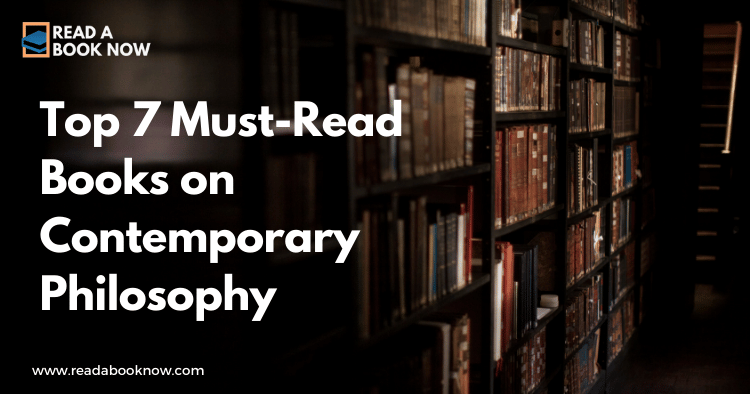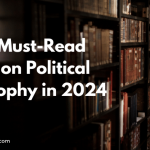Table of Contents
- Introduction
- 1. “Being and Time” by Martin Heidegger
- 2. “The Structure of Scientific Revolutions” by Thomas S. Kuhn
- 3. “A Theory of Justice” by John Rawls
- 4. “Simulacra and Simulation” by Jean Baudrillard
- 5. “The Ethical Slut” by Dossie Easton and Janet W. Hardy
- 6. “An Inquiry into the Good” by Nishida Kitarō
- 7. “The Postmodern Condition” by Jean-François Lyotard
- Conclusion
- FAQs
Introduction
Contemporary philosophy can often feel like a labyrinth of complex ideas and theories, but it also offers profound insights into our modern existence. Whether you’re a seasoned philosophical scholar or a curious newcomer, diving into these thought-provoking texts can enrich your understanding of the world. In this article, we’ll explore seven must-read books that have made significant contributions to contemporary philosophy, each offering unique perspectives on ethics, knowledge, existence, and society.
“Philosophy is the study of the fundamental nature of knowledge, reality, and existence.”
1. Being and Time by Martin Heidegger
Martin Heidegger’s magnum opus, Being and Time (1927), is a cornerstone of existential philosophy. In this work, Heidegger explores the concept of “Being” itself, proposing that understanding our existence is the key to understanding the world around us.
Heidegger introduces terms like “Dasein” (being-there) to describe human existence and emphasizes the importance of time in shaping our understanding of existence. This book challenges readers to confront the nature of being and the inevitability of death, leading to a more authentic way of living.
“To be is to be in time.”
Why Read It?
- Offers profound insights into existential questions.
- Influences numerous fields, including psychology, literature, and theology.
For a deeper dive, check out Stanford Encyclopedia of Philosophy for more on Heidegger’s theories.
2. The Structure of Scientific Revolutions by Thomas S. Kuhn
Published in 1962, Thomas S. Kuhn’s The Structure of Scientific Revolutions revolutionized the way we think about scientific progress. Kuhn argues that science does not progress linearly but rather through a series of paradigms—shifts in understanding that fundamentally change our perception of the world.
Kuhn introduces the concept of “paradigm shifts,” where existing frameworks are replaced by new ones, leading to what he terms “normal science” and “revolutionary science.” This work has had a profound impact not only on philosophy but also on sociology, history, and the philosophy of science.
“The man who is convinced that he is going to die tomorrow is likely to behave differently than the man who believes he will live forever.”
Why Read It?
- Offers an innovative perspective on scientific progress.
- Encourages critical thinking about accepted truths.
Explore more on Kuhn’s impact through The Internet Encyclopedia of Philosophy.
3. A Theory of Justice by John Rawls
In A Theory of Justice (1971), John Rawls presents a compelling argument for justice as fairness. Rawls introduces the “original position” and the “veil of ignorance,” thought experiments designed to determine principles of justice that are fair to all individuals, regardless of their social status.
Rawls’s work has influenced political philosophy and ethical theory, arguing that a just society must ensure equal basic rights, opportunities, and the benefits of social cooperation are distributed fairly.
“Justice is the first virtue of social institutions.”
Why Read It?
- Provides a framework for understanding justice and equality.
- Influential in debates about social justice, law, and politics.
For further exploration, visit The Stanford Encyclopedia of Philosophy on John Rawls.
4. Simulacra and Simulation by Jean Baudrillard
Jean Baudrillard’s Simulacra and Simulation (1981) delves into the relationship between reality, symbols, and society. Baudrillard argues that in a postmodern world, representations of reality (simulacra) have replaced the real thing, creating a hyperreality where the distinction between reality and simulation blurs.
This book is particularly relevant in today’s media-saturated environment, prompting readers to consider how technology and media shape our perceptions of reality.
“We live in a world where there is more and more information, and less and less meaning.”
Why Read It?
- Offers critical insights into modern media and culture.
- Challenges readers to rethink their understanding of reality.
For more on Baudrillard’s theories, check out The Internet Encyclopedia of Philosophy.
5. The Ethical Slut by Dossie Easton and Janet W. Hardy
The Ethical Slut (1997) by Dossie Easton and Janet W. Hardy is a groundbreaking text that explores polyamory and non-monogamous relationships. The authors challenge conventional views on love, sexuality, and relationships, advocating for open communication and consent.
This book is essential for anyone interested in contemporary discussions about love, relationships, and ethics, as it provides practical guidance for navigating non-traditional relationship dynamics.
“The only way to deal with your jealousy is to communicate.”
Why Read It?
- Promotes a healthy conversation about love and sexuality.
- Offers tools for establishing trust and communication in relationships.
Learn more about ethical non-monogamy at The Polyamory Society.
6. An Inquiry into the Good by Nishida Kitarō
Nishida Kitarō’s An Inquiry into the Good (1911) is a profound exploration of ethics and the nature of good from a Japanese philosophical perspective. Nishida seeks to bridge Eastern and Western philosophy, emphasizing the importance of experience and intuition in understanding the good.
His work encourages readers to consider the interconnectedness of all beings and the role of personal experience in shaping ethical beliefs.
“The good is not something to be pursued, but an experience to be realized.”
Why Read It?
- Provides a unique cross-cultural perspective on ethics.
- Stimulates reflection on personal values and experiences.
For additional insights, check out Stanford Encyclopedia of Philosophy on Nishida Kitarō.
7. The Postmodern Condition by Jean-François Lyotard
Jean-François Lyotard’s The Postmodern Condition (1979) critiques the grand narratives that have dominated modern thought, such as religion, science, and ideologies. Lyotard argues that in our postmodern world, these narratives have lost their authority, leading to a plurality of meanings and perspectives.
This work is essential for understanding the complexities of contemporary culture and the challenges posed by relativism.
“In the postmodern, the grand narratives have become incredulous.”
Why Read It?
- Encourages critical examination of dominant ideologies.
- Provides a framework for understanding the nuances of postmodernity.
Discover more about Lyotard’s ideas at The Internet Encyclopedia of Philosophy.
Conclusion
These seven books represent a diverse array of perspectives and themes within contemporary philosophy, each contributing to our understanding of existence, ethics, knowledge, and culture. Engaging with these texts can enrich your philosophical journey and encourage critical thinking about the world around you.
“The unexamined life is not worth living.” — Socrates
FAQs
Q: Why should I read contemporary philosophy?
A: Contemporary philosophy addresses pressing questions about ethics, existence, and society, providing insights that can shape your understanding of current.




